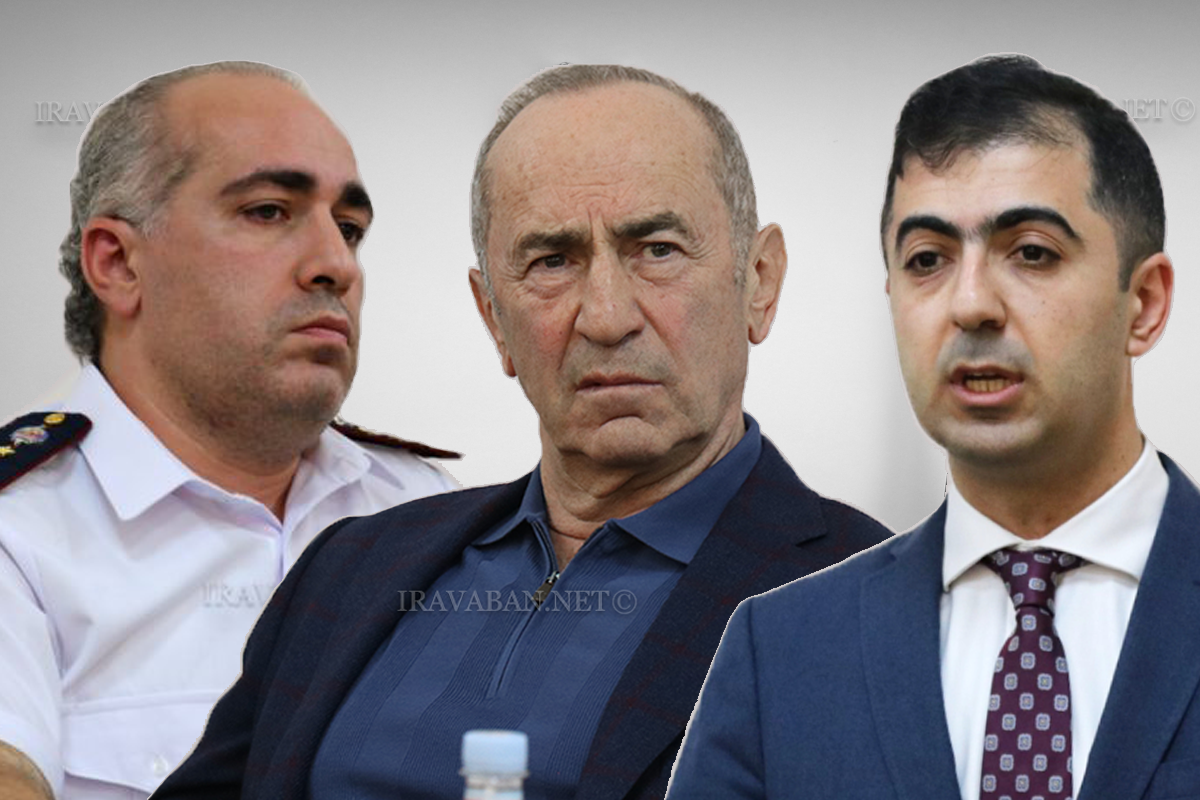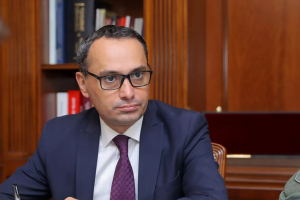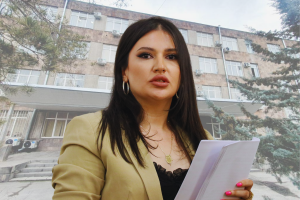A hearing was held on February 13 in the Anti-Corruption Court, presided over by Judge Narine Avagyan, in the case of confiscation of illegally acquired property of RA’s 2nd President Robert Kocharyan and his associated persons.
The Department for Confiscation of Illegally Acquired Property of the Prosecutor General’s Office has filed a lawsuit against Robert Kocharyan and his wife Bella Kocharyan, daughter Gayane Kocharyan, her husband Vigen Chatinyan, two sons Levon and Sedrak Kocharyan, and their wives – singer Sirusho (Siranush Kocharyan) and Zaruhi Badalyan.
According to Iravaban.net, at the previous hearing in this case, the court had distributed the burden of proof, whereby the respondent must prove that after the study began, the claim was filed in violation of the 3-year period, namely on October 11, 2020, while the plaintiff must prove that the claim was filed within 3 years after the decision to start the study, namely on October 9, 2023.
In this regard, the parties were to present evidence and motions aimed at obtaining it. At the hearing, one motion was presented by the plaintiff’s representative, Senior Prosecutor of the Department for Confiscation of Illegally Acquired Property Gevorg Kocharyan, and two by the respondent’s representative, lawyer Aram Orbelyan.
Gevorg Kocharyan motioned to attach the brought documents as evidence to the case materials. Attached to the motion were a postal receipt, copies of the corresponding envelope received from court, and also an extract exported from HayPost’s electronic monitoring system with the corresponding envelope code, confirming that the envelope was submitted on October 9.
Respondent’s representative Aram Orbelyan stated regarding the motion that he would express his position on its admissibility and reliability during the evidence examination phase, insisting that the presented document cannot in any way substantiate whether the envelope that the court received on the 11th of the month was the one submitted to HayPost.
After discussing the presented motion, the court satisfied it – allowing the presented evidence, particularly the copy of postal receipt and information exported from HayPost’s electronic system.
Next, Orbelyan presented a motion concerning the admission of written evidence and extension of deadlines for presenting evidence.
He presented as evidence the correspondence with HayPost and attached files, attorney inquiries that were sent. Through the inquiry, the respondent’s side tried to obtain information about when and how the envelope was sent to the addressee.
In response to the inquiry, they stated that Robert Kocharyan is neither the sender nor the recipient of the shipment with the specified cargo number, and they cannot provide information about the date of receipt of the shipment.
On February 3, 2025, the respondent’s representative sent another attorney inquiry to HayPost, asking to inform to whom the postal shipment with the specified code was addressed and to which post office it was submitted for sending, on what day and time the specified postal shipment was submitted to the corresponding branch, which postal service employee accepted and registered the specified envelope, whether the computer program ensuring the operation of branches provides technical capability to manually enter postal shipments or not.
The respondent’s representative also sent an attorney inquiry to the head of the Anti-Corruption Court staff, trying to obtain available information related to documents entered into court during that period and other related issues.
The lawyer noted that they received the response to this inquiry just recently and haven’t yet familiarized themselves with it. He stated that they also sent an inquiry regarding the same issue to the head of the Judicial Department.
“The respondent has taken measures aimed at obtaining evidence substantiating the fact under discussion. The responses to be received as a result of these inquiries may reveal circumstances of essential importance for the motion, regarding the claim being filed in violation of the statute of limitations,” he said, stating that it is necessary to extend the deadline for receiving evidence to receive responses to the inquiries.
Prosecutor Gevorg Kocharyan asked how the completed inquiries relate to who received it in court, when, and under what conditions.
Orbelyan said there is an “obvious contradiction” here, if the claim had also been sent to the parties when sending it to court, it would be easy to determine when it was sent at all and whether the sent envelope was the same envelope or not: “There is a need to finally clarify, the shipment envelope that has been presented as evidence was not received by the court in this case, because the shipment was received by the court on the 16th of the month; an envelope that reached court on the 16th could not have been registered on the 11th,” he said.
Besides the deadline, the respondent’s side also disputes the issue of envelope correspondence, as well as whether there was 1 envelope and whether that particular envelope was sent, and if sent, whether by mail or handed over in person through a postal or other employee.
Gevorg Kocharyan stated that such criticism is due to technical issues, and it was actually received in court on the 11th of the month, 2 days after entry, while the entry in the online system was marked with the correct day, time, code.
Prosecutor Hamlet Harutyunyan asked the respondent’s representative whether he accepts the fact that October 9, 2023, is indicated on the envelope, postal receipt, and recorded on the post office website, to which Orbelyan responded that there are 3 documents with that date marked.
The plaintiff’s representatives insisted that the motion should be rejected since the evidence requested by them is not relevant to the burden of proof distributed by the court.
“For the statute of limitations motion, only the sending by the plaintiff and its submission to HayPost is of essential importance. The available evidence substantiates that it was submitted by the plaintiff on the 9th of the month, this is not refuted by any evidence, while all other circumstances presented by the respondent’s side are not relevant to the issue under discussion.
At the same time, I suggest to Mr. Orbelyan – if there is any suspicion that a document has been forged here by the prosecutor’s office, HayPost, the court, my suggestion, if you accept it and consider it a civic duty, take appropriate action, file a report, let what you’re trying to do outside the motion be done by the appropriate bodies,” noted Kocharyan.
The respondent’s other representative Arthur Hovhannisyan, joining the presented motion, said: “We have reasonable suspicions that, for example, the claim wasn’t ready on the 9th of the month, because if it had been ready, the prosecutor’s office is well aware that the Civil Procedure Code requires sending copies to the respondents before submitting the claim to court.”
Prosecutor Gevorg Kocharyan also recorded the following: “You can suspect anything since human imagination is not limited. Yes, you can suspect that, for example, the postman didn’t bring it, someone brought it in person, or a Yandex courier. They might have tied it to a dove’s leg, it just split in two, one arrived on the 11th, the other on the 16th, that’s why some issues arose.”
He again insisted that the claim was filed within the deadlines and appropriate evidence has been presented regarding this.
After discussing the presented motion, the court satisfied it – noting that the responses to inquiries sent by the respondent have not yet been received and in the absence of these, the issue of evidence admissibility cannot be discussed. Accordingly, the presiding judge extended the deadline for presenting evidence.
The respondent’s other motion concerned requesting evidence from a non-participating person – HayPost CJSC, to which there was no objection, this motion was also satisfied.
Due to the court being burdened with another session, the hearing was postponed, the next one will be held on March 4.
Mariam Shahnazaryan


















